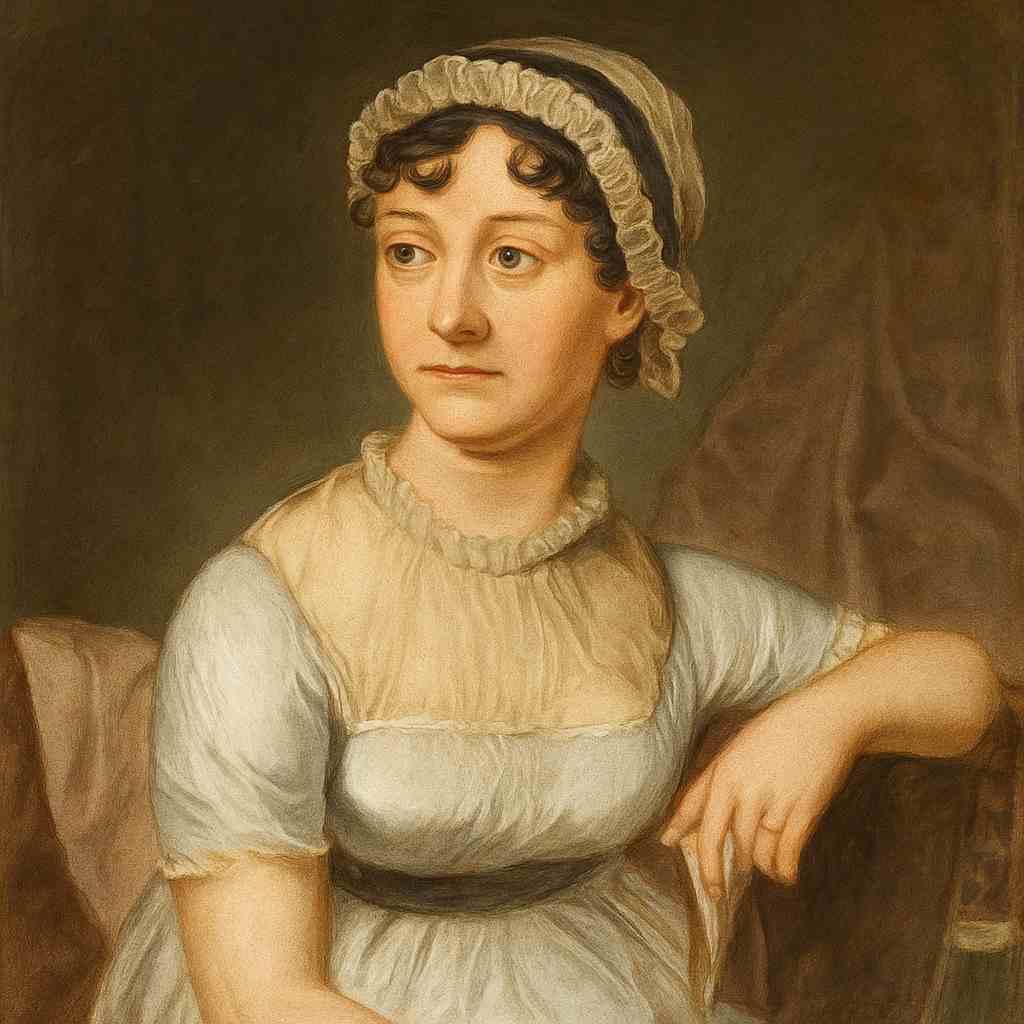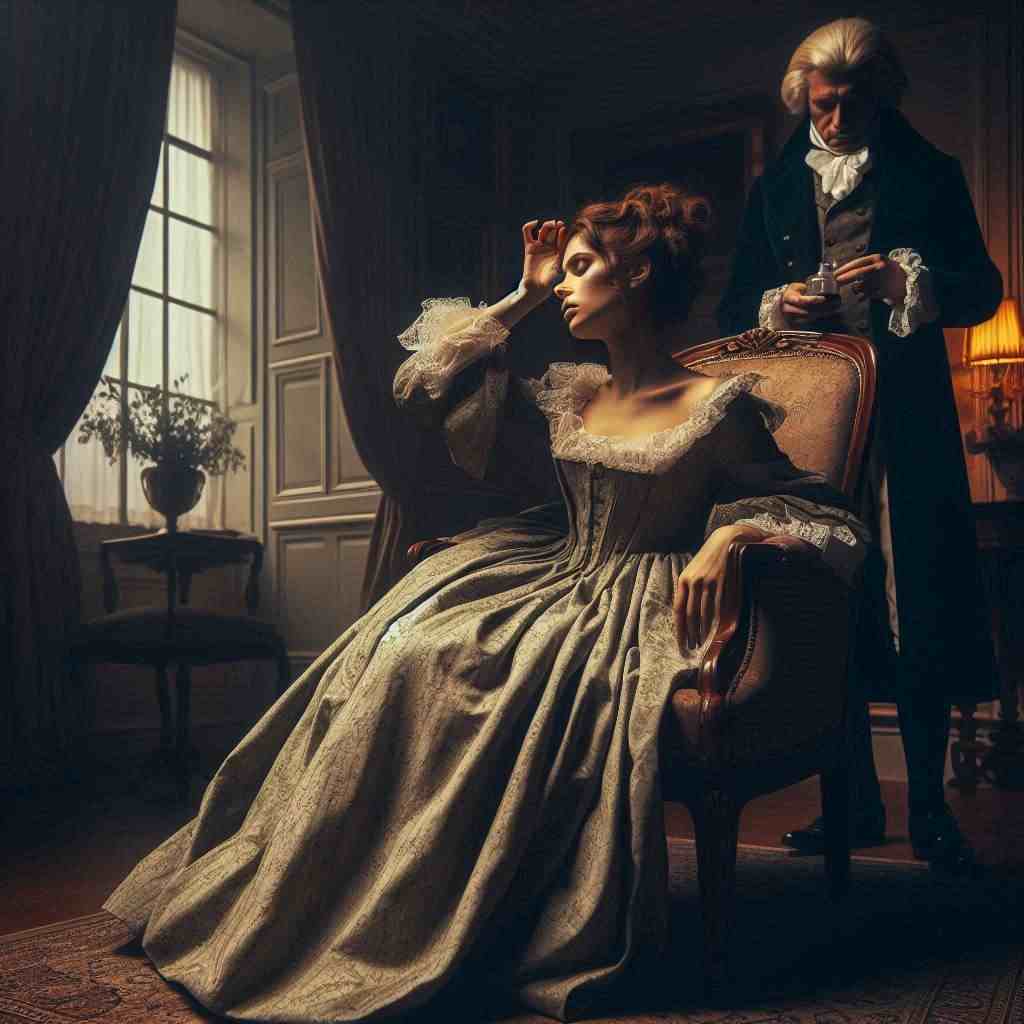2 Poems by Jane Austen
1775 - 1817
Jane Austen Biography
While Jane Austen is primarily renowned as a novelist, her poetic endeavors, though limited, offer an intriguing glimpse into her literary versatility and wit. Born on December 16, 1775, in the village of Steventon, Hampshire, England, Austen was the seventh child of Reverend George Austen and his wife Cassandra. From an early age, she was immersed in a world of words, with access to her father's extensive library and the encouragement of her family to pursue her literary interests.
Austen's foray into poetry was not as prolific or widely recognized as her prose works, but it nonetheless showcased her sharp observational skills and sardonic humor. Her most notable poetic work, "I've a Pain in My Head," written in 1811, is a playful and ironic commentary on the societal expectations placed upon women of her time. The poem, composed in rhyming couplets, demonstrates Austen's ability to infuse even the most mundane of subjects with her characteristic wit and social critique.
Throughout her life, Austen's relationship with poetry was multifaceted. She was an avid reader of poets such as William Cowper and George Crabbe, whose works influenced her own writing style and themes. Her novels often feature characters who engage with poetry, either as readers or amateur poets themselves, reflecting the importance of verse in the cultural landscape of Regency England.
Austen's upbringing in a literary household played a crucial role in shaping her artistic sensibilities. Her father's parsonage was a hub of intellectual activity, where reading aloud and amateur theatricals were common pastimes. This environment nurtured Austen's love for language and her keen ear for dialogue, which would later become hallmarks of her prose style. While her poetic output was limited, the influence of poetic forms and techniques can be discerned in the rhythmic cadence of her prose and her masterful use of free indirect discourse.
The Austen family's financial circumstances, while comfortable, were not extravagant, and Jane, along with her sister Cassandra, faced the challenge of securing their future in a society where women's options were limited. This reality is reflected in both her poetry and prose, where the economic and social constraints on women are recurring themes. The tension between artistic expression and societal expectations that Austen navigated in her own life found its way into her work, including her few forays into verse.
Austen's life was marked by periods of intense creativity interspersed with long stretches of domestic duties and family obligations. Her writing, including her poetry, was often done in stolen moments, scribbled on scraps of paper or in notebooks that she could quickly hide away. This clandestine approach to composition adds a layer of intimacy to her poetic works, as if they were private musings not intended for public consumption.
The Napoleonic Wars, which cast a long shadow over Austen's lifetime, influenced her worldview and, by extension, her writing. While her poetry does not directly address the conflicts, the economic and social upheavals of the era are subtly reflected in her work. The tension between the domestic sphere and the wider world, a recurring theme in her novels, can also be detected in the subtext of her verse.
Austen's untimely death at the age of 41 in 1817 cut short a literary career that was only beginning to gain recognition. Her poetic legacy, though overshadowed by her novels, offers scholars and enthusiasts a unique perspective on her development as a writer. The playful experimentation with language and form evident in her poetry can be seen as a precursor to the more sophisticated narrative techniques she would employ in her prose works.
In the centuries since her death, Austen's reputation as a novelist has grown exponentially, but her poetry remains a relatively unexplored aspect of her oeuvre. Literary scholars continue to debate the significance of her poetic works, with some arguing that they provide valuable insights into her creative process and others viewing them as mere curiosities in the career of a prose master.
The rediscovery and publication of Austen's juvenilia in the 20th century, including some of her early poetic attempts, has further enriched our understanding of her artistic development. These early works, often parodic and exuberant, reveal a young writer honing her craft and developing the ironic voice that would become her trademark.
Jane Austen's life and work, including her brief excursions into poetry, continue to fascinate readers and scholars alike. Her ability to distill the complexities of human nature and society into elegant, witty prose—and occasionally verse—ensures her place in the pantheon of English literature. As we continue to explore the full breadth of her literary output, including her poetry, we gain a more nuanced appreciation of Austen not just as a novelist, but as a multifaceted artist whose influence extends far beyond the boundaries of any single genre.
This text was generated by AI and is for reference only. Learn more
Username Information
No username is open
Everything is free to use, but donations are always appreciated.
Quick Links
© 2024-2025 R.I.Chalmers (V2Melody).

All music on this site by R.I.Chalmers (V2Melody) is licensed under a Creative Commons Attribution-NonCommercial 4.0 International License.
Attribution Requirement:
When using this music, you must give appropriate credit by including the following statement (or equivalent) wherever the music is used or credited:
"Music by R.I.Chalmers (V2Melody) – https://v2melody.com"
Support My Work:
If you enjoy this music and would like to support future creations, your thanks are always welcome but never required.
Thanks!



